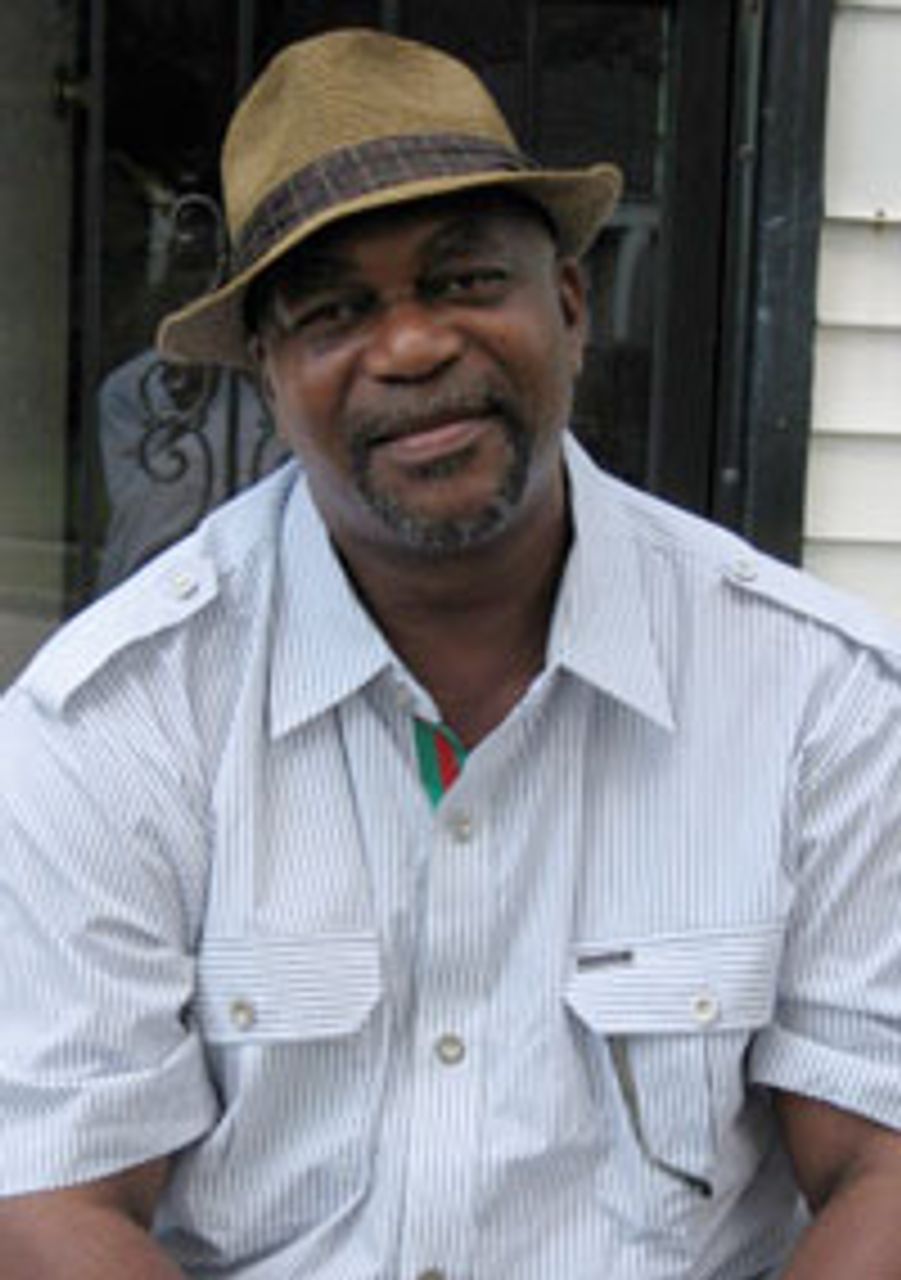On August 24, at approximately 1:30 p.m., veteran utility worker Michael Eugene Parks was electrocuted and killed while repairing a power line in northwest Detroit. Parks worked for Energy Clearance Corporation, a company contracted by DTE Energy.
Park’s death is the second involving a utility worker in the city over the last four months. On April 16 an AT&T worker was struck by a DTE line and killed while working on a utility pole sharing telephone and electrical lines. Working alone, his body hung motionless until a resident discovered it.
Although the circumstances of Park’s death have not been fully investigated, a spokeswoman for DTE said the accident took place after the worker came into contact with an overhead line.
“He was injured while changing out a cross arm on a utility pole,” DTE spokesperson Eileen Dixon told the Detroit News. “We have no details yet on exactly how it happened. He was taken to Sinai (Grace) Hospital where he died.”
 Juan Senegal
Juan SenegalWitnesses in the neighborhood told the WSWS they heard a load noise followed by fellow utility workers running to Park’s assistance. “It’s a terrible thing,” said Juan Senegal, an unemployed construction worker.” I saw the utility workers working on the line. Then I saw an arc of flame and heard a load noise, but I thought it was a tree or something. Then I saw the utility guys running over to the area where the worker died.”
One witness told the WXYZ News, “All his pants were sizzled and burnt, his skin was burnt. He had a gash in the back of his head from where he had fallen.” Another witness told reporters, “My first reaction was to pray over his body.”
Many people in the neighborhood place the blame directly on DTE. They say the utility giant does little to repair faulty wires and electrical equipment, creating constant outages and dangerous conditions.
 Elizabeth Vinson
Elizabeth VinsonElizabeth Vinson told the WSWS: “We have power outages here quite often. The transformer over there will go out often,” she said, pointing to the box across the street. “Sometimes during a storm is starts sparking and it just lights up the entire sky. Sparks are flying all over the place. It’s dangerous for anyone in the area.”
Elizabeth said when she told the repair people there was a problem with the transformer they denied it. “They said there was no problem with the transformer and the guy next door backed me up and said there was a problem. It’s incredible how the transformer sparks. It’s like nothing you have ever seen before.”
Senegal, the next-door neighbor, empathized with Parks and his family. “It’s a real tragedy. I’m a construction worker myself. I know what it is like,” he said, explaining that he had witnessed fellow workers die on construction sites.
Senegal said DTE is using contract workers to cut costs. “You know, DTE doesn’t care. They are making tons of money. He is a worker just like me.”
“DTE really pisses me off,” continued Senegal. “Look across the street. See how the trees are on the wires? DTE told us that we had to have the trees cleared from the wires. Does that make sense? Those aren’t my trees. DTE should be clearing those trees. I don’t even have any trees in my yard. Yet they tell us we are responsible for clearing the trees. They just don’t care.”
As part of its cost reduction efforts, DTE, which recorded an increase in profits to $315 million in the first half of the year, has laid off linemen and increased its use of subcontractors. It has also demanded cost reductions from its contractors, provoking a strike earlier this year of workers at its tree-trimming companies.
Energy Clearance Corporation is a subsidiary of Energy Group USA and Utility Services of America, a black-owned business in Detroit. The chairman and founder of the company is K.B. Stallworth, a former Democratic Party politician whose mother was a Michigan state representative for 22 years.
According to a 1998 report issued by the National Institute for Occupational Safety and Health (NIOSH), electrocutions were the fifth leading cause of occupational fatalities between 1980 and 1992. The report, issued by a NIOSH National Traumatic Occupational Fatalities survey, found that 5,348 workers died from contact with electrical energy during this period, for an average of 411 deaths per year.
For their part, unions representing DTE workers and subcontractors, the Utility Workers of America and the International Brotherhood of Electrical Workers, have collaborated in the cost-cutting, undermining the safety of utility workers. They have also joined the company’s campaign denouncing Detroit residents for supposed “energy theft.”
While DTE has cut back on basic infrastructure maintenance it has spent millions on aerial infrared photography and other measures to spy on impoverished residents who have unauthorized utility hookups because they cannot afford ever-rising utility bills. The shutoff of services—including in the wintertime—has led to a series of deadly fires.
So far this year 11 people in Detroit have died in house fires after their utilities were shut off by DTE. According to reports the WSWS received from the Michigan Public Services Commission, shutoffs due to non-payment caused by poverty have resulted in 237,000 shutoffs in the first seven months of this year (January-July).
